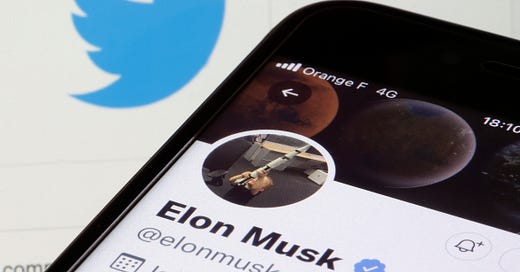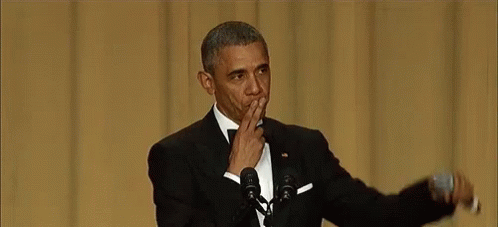1. JVL Is Always Right
There’s a reason we sell the shirt. Here’s me on April 15:
So is Musk really going to buy Twitter?
I doubt it. . . .
So what gives?
Oh, who can say. But just for fun, remember the time Tesla quietly bought a billi of bitcoin and then announced that it would accept bitcoin as payment for cars, which is totally a non sequitur except that said announcement caused the price of bitcoin to jump?
Or, remember the time Musk said he had secured funding to take Tesla private at $420 a share? (Remember that number.)
Or, remember the time Musk tweeted that he thought Tesla shares were overvalued?
Or, remember all the times Musk flipped off the SEC?
Or, all of the dogecoin stuff.
It’s almost like this is a guy who’s reached the point in life where he can’t get it up except by manipulating markets as part of a weird D/s relationship with the Securities and Exchange Commission.
It’s his kink.
Here’s your Bloomberg report from June 8:
Elon Musk is trying to end an agreement to buy Twitter Inc. for $44 billion and take it private, alleging that the company misrepresented user data and setting the stage for an arduous court brawl.
Who am I kidding? Ain’t no way I’m letting go of this mic.
Matt Levine is also taking a well-deserved/full-of-ennui victory lap in which he observes how both the legal and financial systems have been warped beyond perversion and into something that is at once ridiculous and macabre.
Here’s the deal: Twitter is going to take Musk to chancery court in Delaware. The court can do one of three things:
Find in Musk’s favor and let him walk away.
Find in Twitter’s favor and make Musk pay a $1b “break-up” fee.
Find in Twitter’s favor and order “specific performance”—which basically means that the court tells Musk he has to compete the deal.
Here’s where it gets ridiculous and macabre:
Delaware has an interest in coming down as hard on Musk as possible because they need to protect the integrity of the state’s corporate practices and let other businesses know that it is safe to operate under their jurisdiction. Which means that, all things equal, a $1b break-up fee would not be a sufficient penalty for Musk.
However, Delaware will also be terrified that if the judge issues a “specific performance” ruling, Musk might completely ignore it.
Here’s Levine:
Musk’s goal here is presumably to walk away from Twitter and pay only $1 billion in damages. That would make this whole lark of pretending to buy Twitter an expensive joke, but definitely one he can afford. Paying $33.5 billion and having to own and run Twitter would sort of spoil the fun. . . .
The fact that Musk is working in such bad faith here — that he seems so unconcerned with law and the contract he signed — cuts both ways. On the one hand, it will certainly annoy a Delaware chancellor; Delaware likes to think of itself as a stable place for corporate deals, with predictable law and binding contracts, and Musk’s antics undermine that. On the other hand it might intimidate a Delaware chancellor: What if the court orders Musk to close the deal and he says no? They’re not gonna put him in Chancery jail. The guy is pretty contemptuous of legal authority; he thinks he is above the law and he might be right. A showdown between Musk and a judge might undermine Delaware corporate law more than letting him weasel out of the deal would. [emphasis mine]
You sit with that, Pop-Pop.
As we have seen in other contexts, the rule of law tends to break down in the face of people who have not the slightest shred of respect for even the idea of it. Or at least in the face of very powerful people who have not the slightest shred of respect for the idea of it.
One of the big and surprising lessons of the last six years has been the realization that so much of American society—from the Constitution, to politics, to the Supreme Court, to economics, to GD chancery law—runs on the honor system.
Or at least, this was a very large and very surprising lesson for me, personally.
This may be one of the key differences between people who are concerned about the future of democracy and people who think such concerns are silly and everything will be basically fine.
The “basically fine” people believe that the “guardrails”—meaning the distributed power of government institutions, the law, the courts, the unwillingness of most people to risk legal exposure, etc.—will eventually check anyone trying to do something really dangerous.
Which is why these people feel like they can go along with the guy who seems dangerous. They believe that some other institution will jump in front of the train should it ever truly jump the tracks. They don’t need to give up their rank or position in order to take a stand against potential danger. The guardrails will perform that function for them.
The lesson I have taken is precisely the opposite: The “guardrails” are imaginary. They exist only in the minds of people who believe in them.






